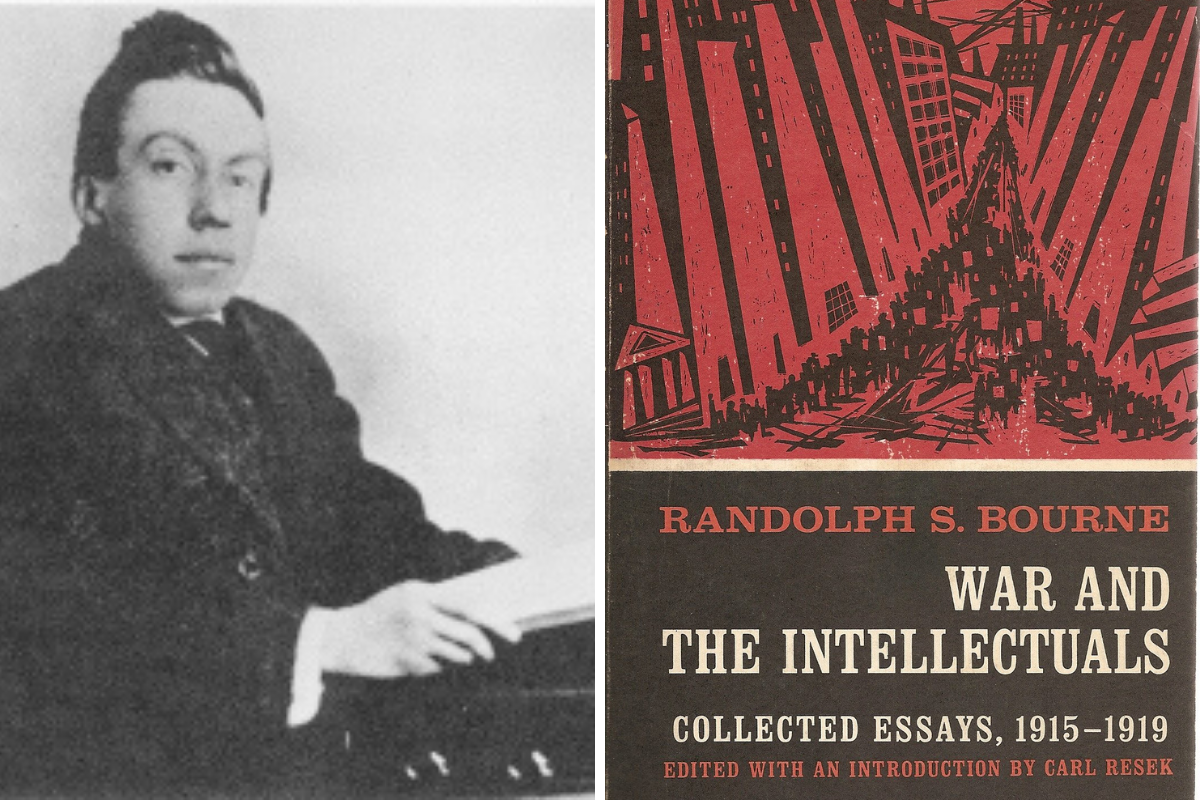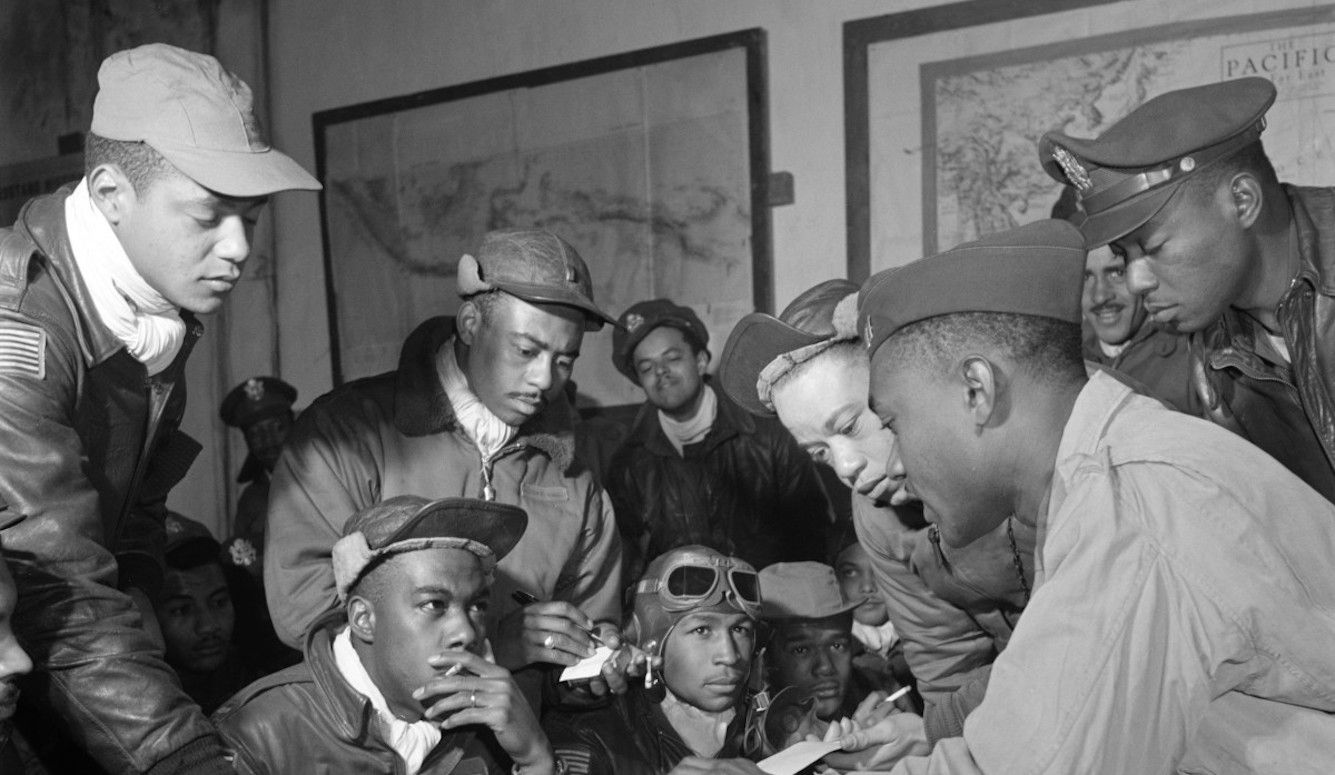History
A Toast to Randolph Bourne
There is much we can learn from Bourne, not only from his joie-de-vivre, his ideas about cultural diversity and disability, but perhaps most of all, from his toughness, his willingness to criticize associates.

The pandemic has taken from us a bold and gifted writer, just 32 years old—only not this pandemic but the one that swept the world in 1918. The story of Randolph Bourne confirms that history perpetually forgets what it perpetually remembers. Every decade rediscovers Bourne and every decade loses him again. Once Bourne loomed large as a brash American essayist who championed a new generation of iconoclastic intellectuals. Lewis Mumford, the urban critic, recalled the thrill of reading Bourne on the eve of World War I. I still remember, he wrote, “when I paced back and forth pondering Bourne’s prophetic words” about the war. Ten years later, he queried a student about him. “I belong to the class of 1926,” she replied, “and the truth is, I never heard of Randolph Bourne.” So it would continue. In the 1960s, my teacher Christopher Lasch heralded Bourne—to little effect. In the 1980s, a book on Bourne entitled Forgotten Prophet appeared—and was forgotten.
Why summon Bourne again today? For several reasons. He spoke in a voice as clear as a bell on the issues of his day that turn out to be the issues of our day: militarism, cultural diversity, disabilities. On the last he had, as it were, the bona fides. He was mangled during birth and as an infant suffered a spinal disease. He stood barely five feet with “a crooked back and an unsightly face.” The words are his, from a 1911 essay “The Handicapped,” which he published anonymously in the Atlantic; the attribution read “By One of Them.” He did not sugarcoat. “The doors of the deformed man are always locked and the key is on the outside.” The world of social gatherings seemed closed. As a young person he could only “look through the window at the light and warmth of a glittering party.” But as he got older he learned other ways to live and love. We should not take our “ideas and standards” only from the successful and wealthy, he said. He counseled the handicapped, “Above all do not let any morbid feelings of inferiority creep into your soul.” And he was not willing to lead a life without joy and passion. He loved, wrote the novelist John Dos Passos, “pretty girls and good food and evenings of talk.”
Perhaps because of his disability—I have a “profound sympathy for all who are despised and ignored”—he became an acid critic of the contemporary jingoism, suspicious as it was of immigrants and their lives. Bourne protested “the current program of Americanism” with its push to turn immigrants into “a colorless, tasteless, homogenous mass.” He wanted peoples to be proud of their differences. “It is not the Jew who sticks proudly to the faith of his father,” wrote the venerable Anglo-Saxon Bourne in an essay “Trans-National America,” who is “dangerous to America, but the Jew who has lost the Jewish fire.” He rejected the “weary old nationalism” marked by belligerent inbreeding in favor of “a cosmopolitan federation” marked by separate groups. He called for an America that was a “freely mingling society of peoples of very different racial and social antecedents.”
Here as elsewhere Bourne swam against the current, especially as World War I redoubled an already strident Americanism. Bourne denounced the war, its supporters, and its effect on American society. We are, he wrote, “on a leaky boat, rudderless, pilotless with engines going at full speed.” He concluded the issue was not just World War I but any state enmeshed in war that was the evil. In a manuscript he never published, he declared, “War is the health of the State.”
We are not now in a war, “rudderless, pilotless with engines going full speed”—or are we? As Bourne indicated, state and military stand inextricably connected. The United States has a military budget equal to that of the next seven largest military budgets combined. When is big too big? Again and again, Bourne wrote about promoting the means of life, not death. He suggested that we shift resources from the military to the non-military. His proposal for a national youth corps devoted to the craft of life anticipated Franklin Delano Roosevelt’s National Youth Administration and John Fitzgerald Kennedy’s Peace Corps. For Bourne, the youth corps would “do the things which need to be done, but which are not now being done.” He listed food inspection, care of dependents, playground service, nursing, tree-planting, repair of roads, and conservation projects. It would reinvigorate our cities, our farms and our national esprit. “Our need is to learn how to live rather than die; to be teachers and creators, not engines of destruction.”
The war upended for Bourne a central tenet of liberal society, the notion of inevitable progress. We must accept “the stern truth” that there is “no such thing as automatic progress.” The belief that “the world is moving in solid phalanx onward and upward” has misled liberals. We now see “the instability of our world.” Neither political nor social nor moral advances are safely secured. Democracy itself was fragile. “All the sentiment and good-will in the world will not avail against a power, which, with its hands on the machinery, is able to defy or hypnotize loosely floating ‘public opinion.’”
Bourne wrote as an intellectual for intellectuals. He easily employed the phrase “the intellectual class” did this or that. Over the decades the term has lost cohesion. Who are the intellectuals and what do they want? The question cannot be easily answered, which is not to say it lacks importance. As teachers, writers, and bloggers, intellectuals give shape to politics and discussion. They invigorate or weaken democracy. Bourne understood that. Anne Applebaum’s recent book, Twilight of Democracy, returns to these issues of democracy and intellectuals. The epigram for her book comes from The Betrayal of the Intellectuals, the classic 1927 work by the Frenchman Julien Benda. For Applebaum, Benda presciently denounced intellectual apologists, the “authoritarian elites” that underpinned Stalinism and Nazism. She does not draw a parallel between the 1930s and today but suggests an “authoritarian tendency” infects the “intellectuals, journalists, bloggers, writers and artists” who threaten democracy. She focuses on right-wing authoritarianism in Eastern Europe, mainly Poland. But she sees the threat everywhere, including in the United States, where “far-left campus agitators … seek to dictate how professors can teach and what students can say,” and where Twitter mobs savage people for “violating unwritten speech codes.”

Bourne, of course, predated Benda, but, like him, resists easy categories; both Benda and Bourne straddled Left and Right. The English translation of Benda’s book illustrates the difficulty of pigeonholing the Frenchman. Its first edition sported an introduction by the English anarchist, Herbert Read, who called it “neither shallowly progressive nor obtusely reactionary.” The most recent edition, now retitled as The Treason of the Intellectuals, carries an introduction by the conservative critic, Roger Kimball. Bourne’s work exists in the same forcefield. Libertarians who follow Murray Rothbard claim him; at the same time Noam Chomsky praises him. Bourne in fact belonged to a Left, but found that Left wanting. Its intellectuals were succumbing to “herd-intellect … Simple syllogisms are substituted for analysis, things are known by their labels, our heart’s desire dictates what we shall see.” Even “the socialists, the college professors and the practitioners of literature” have become propagandists. “Intellectual radicalism should not mean repeating stale dogmas of Marxism,” Bourne declared in 1916.
There is much we can learn from Bourne, not only from his joie-de-vivre, his ideas about cultural diversity and disability, but perhaps most of all, from his toughness, his willingness to criticize associates. “Speaking truth to power” has become a cliché and, at least in most of the West, an empty gesture or a self-awarded honor. To denounce imperialism or colonialism or racism takes no special courage. But speaking truth to one’s own circle is something entirely different; this takes steely nerves, which Bourne possessed. His essay “War and the Intellectuals” castigates the failures of the liberal intellectuals, who were his friends. He ended by calling upon small ‘d’ democrats to remain “irreconcilable” to war fever. He wanted them to “disturb” the intellectual quietude, to “keep the intellectual waters constantly in motion” so ice does not set.
Bourne’s irreconcilability came with a price. The war enthusiasm and resurgent nationalism discouraged him. His opposition cost him acquaintances, writing outlets, and an income. Even his family turned against him. Yet he did not bend. A companion recalled that with all his setbacks, he remained upbeat. “Life was a feast which began with breakfast” and continued with long discussions into the night. But the feast ended for Bourne in December 1918 as he caught what was known as the Spanish flu during the pandemic of 1918. He was about to get married and had decamped to the apartment of his fiancé to heal. He had trouble breathing, but a nurse advised that with crowded emergency rooms he ought to stay at home. He died before Christmas. “It was the good fortune of American society to produce this man,” closed Mumford’s appreciation. “We must not toss that luck away.” Amen. Take a moment to raise a glass to honor the brief life of Randolph Bourne.






